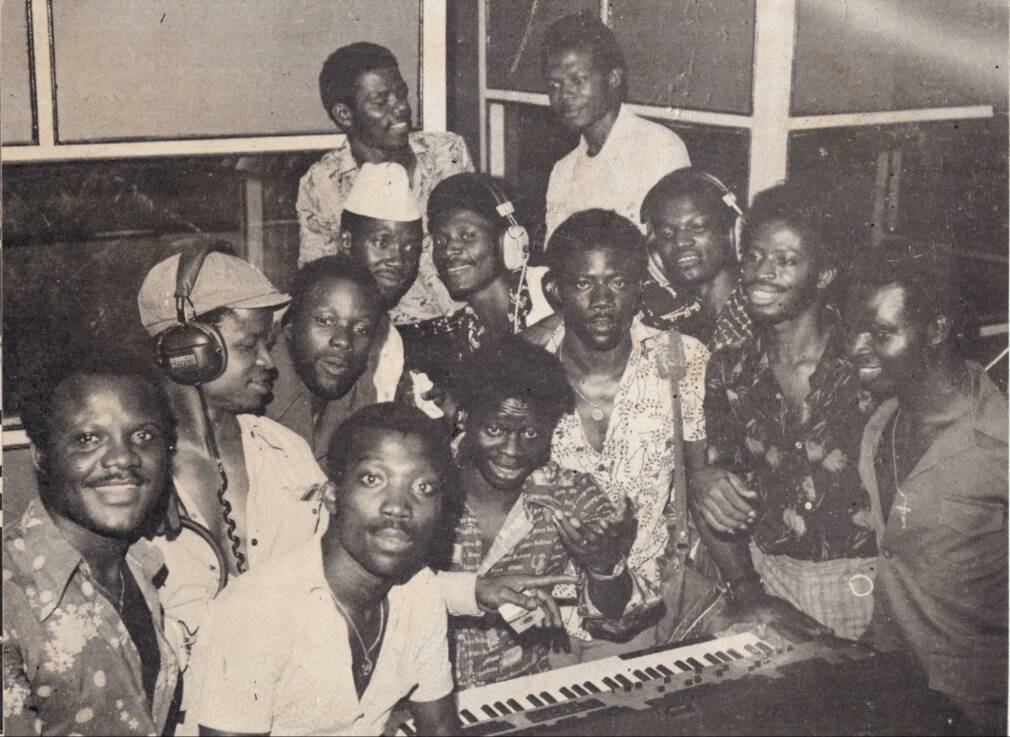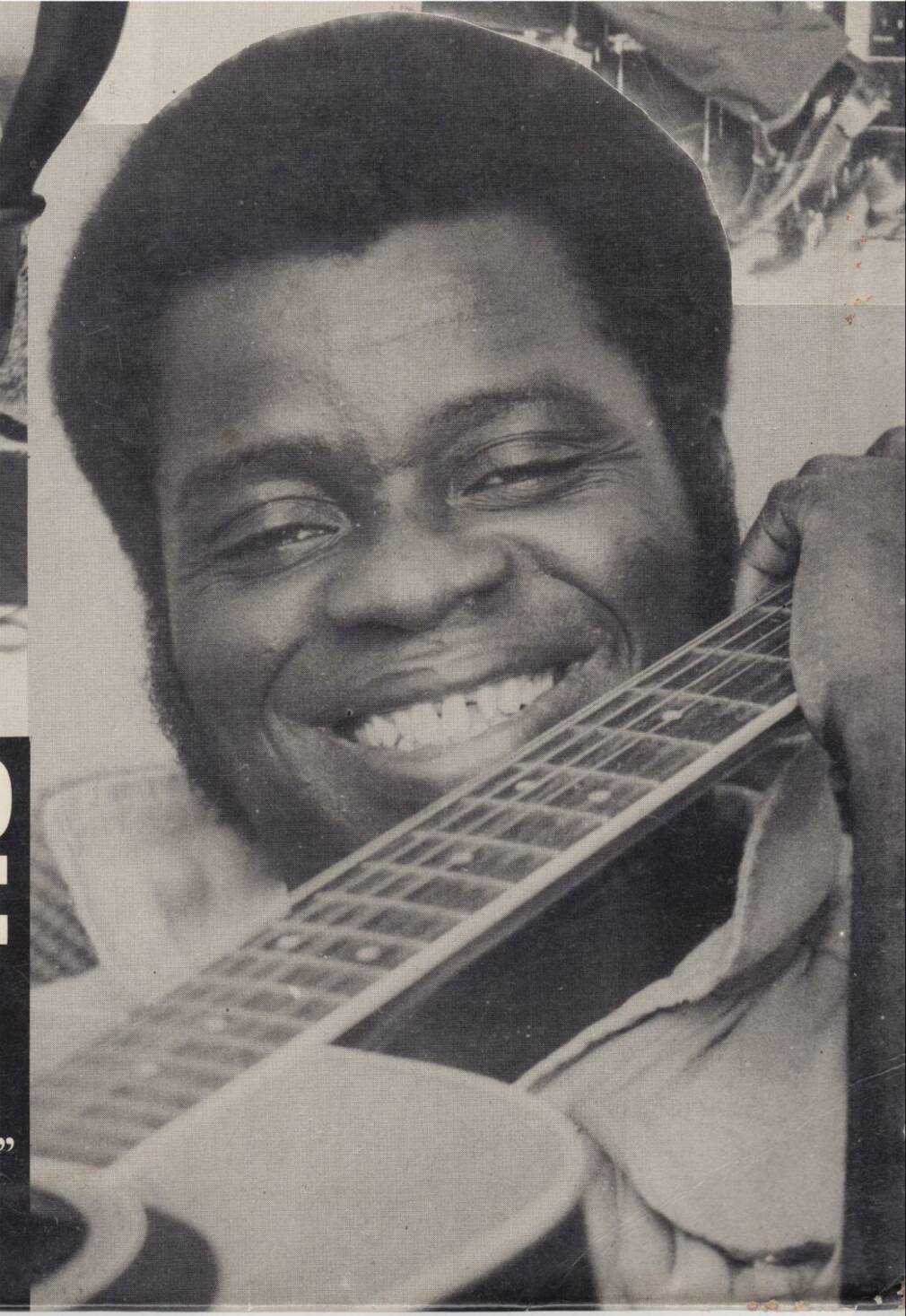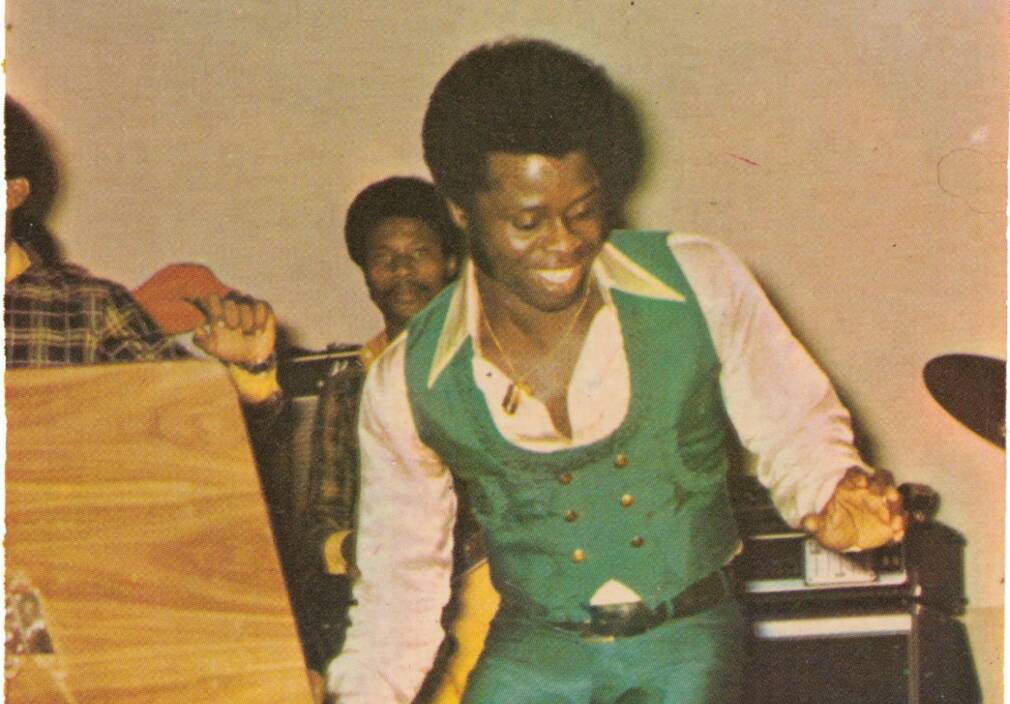How to forget the afro cut, the legs, the shiny satin suits but especially the footwork of Ernesto Djedje when, carried away by the percussions, he punctuated his dance solos with a masterly headbutt that was worth all the breaks? How to forget, of course, the sound, baptized ziglibithy, which no other contemporary could match? The artist, guitarist and singer born in 1947 in Tahiragué, in the central-western part of Côte d’Ivoire, is the perfect embodiment of the 20 glorious years that made people talk about the “Ivorian miracle”. Those of the economic boom, boosted by the rising global prices of cocoa, of which the Ivory Coast was to become the first world producer. For a while, the singer was going to use his musical skills at Arso, the company in charge of the development of the port of San Pedro (from where most of the Ivorian cocoa is exported), which had its own orchestra in charge of entertaining the executives. But let’s not get ahead of ourselves.
When the “Gnoantré” takes over from the “Dopé
Let’s first go to the backstory of the one who would later be called “the National Gnoantré”. Ernest’s father, Senegalese, left for the Central African Republic, where he became the imam of the capital, Bangui. Ernest was raised by his mother and it was his maternal uncle who began to call him “djedjé”, the local name for the iroko tree, which serves as a channel to honor the ancestors. Imbued with the culture and traditions of the Bete country, which will exert an important influence on him throughout his career (particularly the metaphors and the tone of the fables he uses in his songs), he began his career by founding his first group, the Antilopes, at the age of 16. He and his friend Mamadou Kanté were spotted by Amédée Pierre, also from the region, and ten years his senior. This was in the middle of the 60s and already, the “national depé” (the “national nightingale”, nickname given to Amédée Pierre), shines on the plaza of Abidjan with his orchestra Ivoiro-star. He hired Ernest aka Ernesto, a stage name in line with the Afro-Cuban fever that was then raging throughout West Africa. Djédjé became one of the pillars, but left his post in 1968 to go to Paris where he resumed his studies, to the great displeasure of the man who considered himself his mentor. Especially since Ernest was not finished with music, and his stay in France appears in retrospect as the search for a personal path, the starting point of a solo career. It was in Paris, with Manu Dibango as arranger, that he recorded his first singles, tinged with soul and rhythm’n’blues. “Anowa” in 1970, “Gna Panou” in 1971, and “Mamadou Coulibaly” in 1973, made him a household name.

A unique sound
In the same year, he returned home and was offered a full orchestra by the head of the ARSO (Aménagement de la Région du Sud-Ouest). Ernesto was in charge of animating the evenings in San Pedro. At the time, soul and funk were very popular with the public, but Ernesto decided to go back to tradition and combine them with trends from across the Atlantic. This was to be the perfect cocktail, sung in Bété, of a new sound, which he soon christened ziglibithy. Three years later, when he left the ARSO orchestra, it was this sound that he wanted to engrave in wax. So, he landed in Abidjan, at Raïmi Gbadamassi, founder of the Badmos label (a diminutive of his own name) whose store Ernesto had known for a long time, frequented assiduously at his beginnings in the Ivoiro-star.
He managed to convince him to produce his first LP. Let’s leave it to Badmos to tell the rest, which he noted for the label Analog Africa:
“Before I started I asked Ernesto what kind of music he had in mind and he told me that he had developed a concept called ziglibithy – a mixture of Bete dance music and western elements. I was surprised by the idea and, as I could not imagine what it would sound like, I asked him to sing something. He did so on the spot and I must admit that I was impressed. At that time, I had been selling records for about ten years and I had developed a good ear for music, and I felt that this project could work. Of course, with music you can never be sure of what will happen, but it was a challenge I was happy to take on. And then, I wanted to be the first producer who would release an LP of Ernesto Djédjé”.

Ziglibithiens and ziglibithiettes
In 1977, this first album was released and included the famous “Ziboté” which was a hit, as well as “Aguissé”, which also became famous. The “king of ziglibithy” or “sparrowhawk” (was it because of his dance, arms spread, that he was called like that?) began a golden period of success. Above all, his music, which mixes soul, funk, makossa, and the 6/8 rhythms of the Bete country, constitutes a first attempt to free himself from Afro-Cuban and to invent a modern music resolutely rooted in one of the rich cultures of the Ivory Coast. He became the darling of the national television, but also of the galas organized by the presidency where he performed regularly. From his second album, still produced by Badmos with Maikano, he pays tribute to Houphouet Boigny (who didn’t in those years!) and to those who follow him, the king of ziglibithy, obviously called “ziglibithiens”. This track with a formidable groove is part of the EP released by Analog Africa in early October 2022, which includes four other tracks of the star (including this one), from his golden period (1977-1982).
In 1983, while Alpha Blondy has just made a smashing entry on the Ivorian scene, the Gnoantré (the one with whom we fight) National left it brutally. The causes of his death remains unclear, but the extraordinary showman, only 35 years old, leaves a brutal scar in the hearts of Ivorians. He would be entitled to a funeral worthy of a head of state, leaving a huge trail in the history of Ivorian music.





